Nigeria

A Roman Catholic priest is collecting and saving hundreds of traditional pre-Christian religious artifacts in southeast Nigeria that new converts to Christianity had planned to burn.
The collection includes carvings of pagan deities and masks, some of them more than a century old and considered central to the pre-Christian religion of the Igbo people, who traditionally believed them to be sacred and to have supernatural powers.
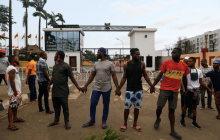
Some religious leaders believe the national protests are capable of helping to strengthen Nigeria’s democratic institutions. “If the international community is seeing this, they would see it as a people who are trying to rediscover themselves,” he said. “Our democracy is not perfect; it’s still developing. And this will help hasten the elements that would in the long run improve our democratic credentials.”

Tit-for-tat killings had started between Christians and Muslims in Jos. In Muslim-dominated areas, Muslims roamed the streets and singled out Christians. In Christian-dominated areas, the Christians retaliated with killings Muslims. Cars, houses, and churches were burned to the ground.

Last week, just days before he addresses the nation in the State of the Union speech, President Donald Trump signed a proclamation that placed restrictions on nationals from Myanmar, Eritrea, Kyrgyzstan, Nigeria, Sudan, and Tanzania from traveling to the United States. The Department of Homeland Security said the restrictions will go into effect Feb. 21.
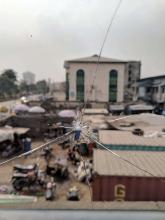
For more than a decade, reform of Nigeria’s congested prisons has stalled, becoming a perennial problem for successive governments. Courts are bogged down with a huge backlog of cases, delaying the delivery of justice. Corruption among judicial officers only makes matters worse inside the prisons.

In northern Nigeria, the epicenter of insurgency and ethno-religious violence, Christians are the minority and have experienced widespread persecution from terrorists who share the extremist view of creating an Islamic state across northern Nigeria.

When President Obama signed a newly strengthened international religious freedom act on Dec. 16, the intention was to protect religious believers around the world.
But the freshly signed act is being heralded by some legal scholars as a different milestone — for the first time, atheists and other nonreligious persons are explicitly named as a class protected by the law.
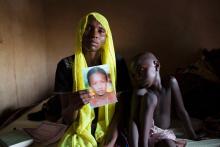
Boko Haram has freed 21 of more than 200 girls kidnapped by the Islamist militant group in April 2014, in the northern Nigerian town of Chibok, the [Nigerian] government said on Thursday.
Around 270 girls were taken from their school in Chibok, in the northeastern Borno state, where the jihadists have waged a seven-year insurgency to try to set up an Islamic state, killing thousands and displacing more than 2 million people.
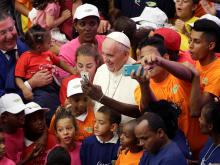
Pope Francis met with refugees and leaders of religious faiths including Christians, Jews, Muslims, and Hindus who joined him for a day of prayer for peace in Assisi, home of his namesake, the 12th-century friar St. Francis.
But it was the migrants he invited to join him for lunch on Sept. 20 who captured the headlines and illustrated the tangible impact of war and conflict.
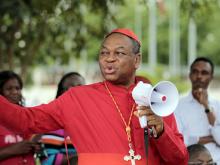
The lives of clergy are known to be difficult, but in Nigeria they are often dangerous, too.
Last week, gunmen shot at a car carrying Roman Catholic Cardinal John Onaiyekan in the country’s southern Edo state. The cardinal was returning home after attending the 10th anniversary celebrations for the Uromi Diocese. He was unharmed.
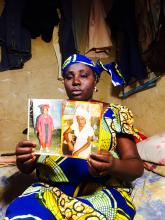
Too often in the biblical witness, violence against women and girls focuses disproportionate energy on the feelings and actions of men. King David is furious. Absalom feels hatred. And the desolate Tamar is instructed to be quiet. Her rapist was, after all, her kinfolk, her half-brother, a member of her tribe.
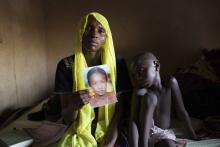
Two years after the abduction of nearly 300 Chibok schoolgirls by Boko Haram militants in northeast Nigeria, some parents are still hoping their daughters will one day be rescued. But some church leaders there are concerned that the authorities have not done enough to rescue the girls, who were ages 16 to 18 at the time of the kidnapping on April 14, 2014. About 50 of the girls escaped, but 219 remain missing.
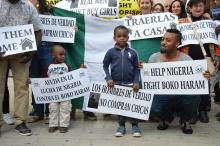
I don’t know who posted it. But on Feb. 2, as I customarily do, I checked into Facebook to see what my friends were talking about. A post popped up about 86 children slaughtered in Dalori, Nigeria, by Boko Haram, the terrorist group that kidnapped upwards of 300 girls on April 14, 2014. The children, the post dated Jan. 31 noted, were burned alive.
I reflexively shuttered. How was is possible that is was Feb. 2 and I had heard NOTHING of children burned alive, not on any news network?

Five hundred days in captivity is a long time for anyone, let alone teen girls. But this is exactly the case for 219 students kidnapped and still missing. Under the cover of darkness on April 14, 2014, the terrorist group Boko Haram, dressed as military soldiers, abducted 276 female students from the Government Secondary School in Chibok, Nigeria. They plundered and burned the school to the ground and forced the young girls into large trucks. A total of 57 girls escaped on their own, but 219 grieving families still await news of their daughters' fate. Based on the reports of other Boko Haram abductees, it's believed the Chibok girls have been sold as child brides, forced into sexual slavery, turned into unwilling weapons of terrorism. Shocking revelations ... as this story has virtually disappeared from the headlines.
What if this had happened in the United States or Europe?
Five hundred days in captivity is a long time for anyone, let alone teen girls. But this is exactly the case for 219 students kidnapped and still missing. Under the cover of darkness on April 14, 2014, the terrorist group Boko Haram, dressed as military soldiers, abducted 276 female students from the Government Secondary School in Chibok, Nigeria. They plundered and burned the school to the ground and forced the young girls into large trucks. A total of 57 girls escaped on their own, but 219 grieving families still await news of their daughters' fate. Based on the reports of other Boko Haram abductees, it's believed the Chibok girls have been sold as child brides, forced into sexual slavery, turned into unwilling weapons of terrorism. Shocking revelations ... as this story has virtually disappeared from the headlines.
What if this had happened in the United States or Europe?
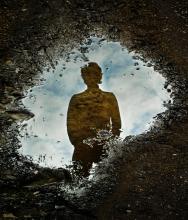
There’s a photo he carries for long journeys
like this one, for trips on loaded market lorries
where the passengers take their seat, perching
on top of cargo, or sitting on crude benches
inside the buses coming from Sudan with names
like “Best of Luck” or “Mr. Good Looking.”

Late last month, Nigerian President Goodluck Jonathan signed a measure that criminalized the act of female genital mutilation in the country.
More than 125 million girls and women are thought to have suffered genital mutilation, a majority of them in Africa, according to The Root.
The Root reports:
"Some 19.9 million Nigerian women living today are thought to have undergone the practice, and human rights advocates hope the decision will spur about 26 other African countries to outlaw the procedure, the report says.
Nigeria’s groundbreaking legislation sends “a powerful signal not only within Nigeria but across Africa,” according to J. Peter Pham, the director of the Africa Center at the Atlantic Council."
The measure, one of outgoing president Jonathan's last acts, sets up president-elect Buhari to uphold the law without fear of political backlash.
Human rights groups have responded positively to the measure but caution that one measure in one country, while regionally significant, is only one step towards ending worldwide violence against women.
Join us in urging our Members of Congress to co-sponsor the 2015 International Violence Against Women Act (IVAWA), to help protect women in humanitarian crises from violence, in Nigeria and around the world.
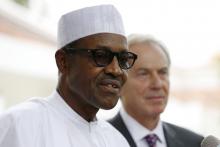
Nigeria’s newly elected president, Muhammadu Buhari, promised during his campaign that he would tackle the militant terrorist group Boko Haram.
On May 29, he will be sworn into office, just as the extremist group is ramping up its use of female suicide bombers.
Buhari, who is Muslim, replaces Goodluck Jonathan, a Christian from the country’s south. Both Christians and Muslims voted for Buhari in April, convinced he could stop the terrorist rampage.
Nigerians fear violence may escalate if female terrorists are deployed because they can hide explosives under their long Muslim abayas, or gowns.
1. Officers Charged in Freddie Gray's Death, Ruled a Homicide
“In an unexpected announcement Friday, Baltimore lead prosecutor Marilyn J. Mosby said there is “probable cause” to file criminal charges against police officers in the death of Freddie Gray ...”
2. How Biased Is Your Feed?
Via Future Journalism Project Media Lab: A new study indicates that news and information gets more biased as it passes through social networks. … And given that half of Facebook and Twitter users consume news via those networks, our consumption and digestion of such “news” could take on that bias.
3. Nepal Earthquake: Up to 15,000 May Have Died, According to Army Chief
Amid public anger at government response to the massive earthquake and threats of disease, the country’s army chief painted a grim estimate of between 10-15,000 likely deaths in the wake of the weekend’s quake.
4. Lawmaker Considers Blocking Baltimore Protesters’ Food Stamp Benefits
“‘That’s an idea, and that could be legislation,’ [Maryland state legislator Patrick McDonough] said in response to a caller who asked if benefits could be revoked from parents of protesters. ‘I think that you could make the case that there is a failure to do proper parenting, and allowing this stuff to happen—is there an opportunity for a month to take away your food stamps?’”
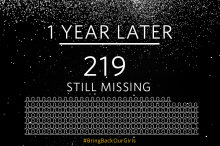
One year after the kidnapping of 276 Nigerian schoolgirls by terror group Boko Haram, more than 200 kidnapped children remain missing.
The kidnapping on April 15, 2014, provoked international outrage and a viral twitter hashtag, #BringBackOurGirls. Many prominent personalities — including First Lady Michelle Obama and comedian Ellen DeGeneres — joined the global outcry, prompting Nigeria to launch a military offensive against the group. Also in the last year, the U.S. military and others have offered Nigeria assistance in finding the children.
But few children to date have escaped from what is widely counted among the most ruthless terror groups operating in North Africa.
According to NBC:
"The Chibok girls were just one group of many, many others who have been kidnapped since last year," said Biu, a woman's rights activist and professor in Maiduguri, Nigeria. "I cannot say that the #BringBackOurGirls campaign has made women and young girls in the northeast feel any safer."
While a few dozen of the Chibok girls have escaped Boko Haram captivity, more than 200 are still missing. To Biu, the international campaign to release the girls did little to bring them home — or stop countless others from being taken since.
Since then, NBC reports, Boko Haram's campaign of terror has continued "largely unabated."
Read more here.
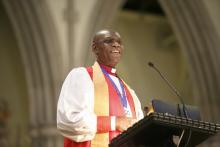
African Anglicans welcomed the appointment of a Nigerian bishop as the next secretary general of the 85 million-member Anglican Communion, even as others criticized the appointment because of his anti-gay comments.
Bishop Josiah Atkins Idowu-Fearon beat other applicants from Oceania, Asia, Europe, and the Americas and will assume the mostly ambassador-type post at a time when the worldwide communion remains estranged over homosexuality and same-sex marriages, especially in Africa.
“He is articulate and very well educated,” said Bishop Julius Kalu of Mombasa, Kenya, diocese.
“His position on traditional Anglicanism is very firm. This is good for us.”
Kalu said the appointment had come at the right time, when African Anglicans needed a bigger voice within the communion.
“The church is growing fastest here,” said Kalu.